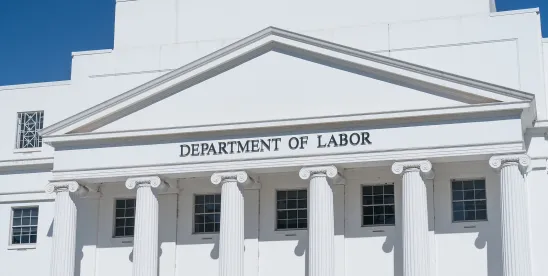The United States Department of Labor (DOL) recently expanded opportunities for employers to self-audit and correct violations of various wage/hour and leave laws it administers. These self-audit programs are intended to assist employers in complying with the law while advancing worker protections. Some of these programs – some of which are new and others expansions of existing or previous programs – allow employers to reduce exposure to formal DOL investigations, litigation, or penalties, whereas others are more informational in nature, with a focus on proactive employer compliance.
- Wage Self-Audits: The DOL’s Wage and Hour Division (WHD) has relaunched its Payroll Audit Independent Determination (PAID) program. This program previously ran from 2018 to early 2021, and it allows employers to resolve minimum wage and overtime violations under the Fair Labor Standards Act (FLSA). To participate, an eligible employer must review certain compliance materials and obtain a certification before conducting the audit. Next, the employer conducts a self-audit to identify potential violations along with back wages that are owed to employees, and the employer reports these findings to the WHD. The WHD evaluates the report and issues a summary of unpaid wages along with a release of liability, which the affected employee(s) may choose to accept or decline. If accepted, the employer issues the payment to resolve the matter. It is advisable to consult with counsel before engaging in a self-audit to confirm eligibility, to properly follow required steps to retain eligibility, and to understand other risks, such as the risk of and exposure associated with state law wage and hour claims.
- Leave Self-Audits: Employers may now also use the PAID program to resolve potential leave violations under the Family Medical Leave Act (FMLA) by following the same steps for wage self-audits. The ability to resolve potential FMLA violations is a helpful addition to the relaunched PAID program.
- Occupational Safety and Health Administration (OSHA) Self-Audits: DOL’s OSHA is expanding its Voluntary Protection Program (VPP). This program recognizes employers that meet performance-based criteria for a managed safety and health protocol and exempts them from routine OSHA inspections and enforcement penalties. This program includes an application review and a rigorous onsite evaluation, with re-evaluation every three to five years. OSHA is also increasing its efforts through its On-Site Construction Program to offer confidential occupational safety and health consultant services free of cost for small- and medium-sized businesses.
- Uniformed Services Employment and Reemployment Rights Act (USERRA) Self-Audits: Through its Support and Assistance for Leaders in USERRA Training and Employment (SALUTE) program, the DOL’s Veterans Employment and Training Service (VETS) provides informal guidance to employers to proactively address and resolve any questions about how the USERRA applies to the civilian employment of member of the nation’s armed services. This includes informal guidance on how the USERRA applies in specific circumstances and how the VETS administers the USERRA. Employers may also continue to request a formal opinion letter from the VETS regarding USERRA compliance matters.
- Mine Safety and Health Self-Audits: The DOL’s Mine Safety and Health Administration (MSHA) has launched a new Compliance Assistance in Safety and Health (CASH) program to respond “to the anticipated surge in U.S. domestic mining productivity” due to the national demand for minerals as outlined in Executive Order 14154 on “Unleashing American Energy.” The CASH program provides informational resources to certain mining operations, along with direct contact to MSHA specialists for assistance with compliance.
- Employee Benefit Plan Self-Audits: The DOL’s Employee Benefits Security Administration (EBSA) provides fiduciaries and benefits plan administrators with two valuable self-correction programs. The Voluntary Fiduciary Correction Program (VFCP) provides an opportunity to address violations of the Employee Retirement Income Security Act (ERISA) discovered during an audit—such as fiduciary violations or prohibited transactions—and to avoid associated excise taxes. The Delinquent Filer Voluntary Compliance Program (DFVC) provides an opportunity to make a self-identified late annual filing at a reduced penalty. These are not new programs, but the VFCP was updated in 2025 with the goal of making it simpler for users.
- Union Self-Audits: The DOL’s Office of Labor-Management Standards (OLMS) administers a Voluntary Compliance Partnership program (VCP). This program assists labor unions and their affiliates with assessing compliance with reporting and disclosure requirements and financial integrity under the Labor-Management Reporting and Disclosure Act (LMRDA).
The DOL has created a new employer webpage to describe these Self-Audit Programs. Although these programs provide additional useful tools for employers in addressing and/or avoiding potential violations, it is advisable to consult with counsel to determine eligibility, comply with all required steps, and to evaluate other tools and options.




 />i
/>i

